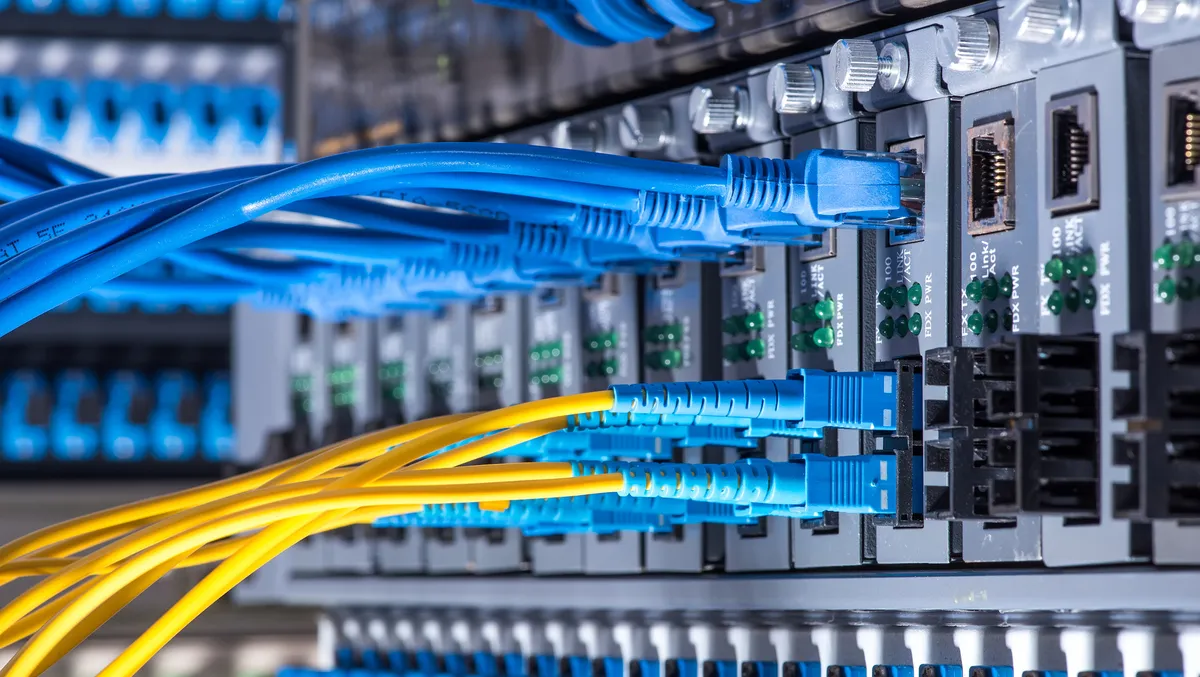
Network efficiencies: Unlocking the power of Managed Network Services
Connectivity is critical to success for businesses operating in today's digital era. Organisations of all sizes rely heavily on robust and reliable network services to maintain operations, enhance productivity and fuel innovation. From schools operating across multiple campuses looking to stay connected to leading retail suppliers servicing a vast region, networks are the engines that drive business.
That said, managing and maintaining an efficient network infrastructure is an intricate and resource-intensive endeavour, fraught with challenges that often divert valuable time and focus from core business activities.
This is where the transformative benefits of managed network services come into play, addressing crucial pain points while offering unmatched expertise and scalability.
The realities of self-managed networks
Running your own network services can present a host of challenges that strain organisational resources:
1. Network Availability: Downtime is not just frustrating; it can result in substantial financial losses. Ensuring high availability requires constant monitoring, quick troubleshooting and efficient maintenance.
2. Network Security: As cyber threats evolve, so must network security measures. Organisations must continuously update their defences against data breaches, malware, and other cyber risks – but with threat actors working around the clock to find holes in your castle walls, keeping a strong defensive posture can feel like a Sisyphean task.
3. Bandwidth Utilisation: Efficiently utilising available bandwidth is essential for seamless operations. Organisations must optimise network performance to prevent bottlenecks and ensure consistent performance, especially when supporting diverse stakeholders with a myriad of on-demand application requirements.
4. Integration of Legacy Hardware: The reality of hardware generations means often organisations are left with legacy hardware that needs to be integrated into modern network architectures or faced with a need to embark upon expansive transformation initiatives. Both require careful planning and expertise to maintain compatibility and performance and come at a resource and financial cost.
5. Network Management and Support: Handling day-to-day network management tasks, such as configuration, monitoring, and troubleshooting, can divert IT teams from strategic initiatives. If your IT assets are constantly tied up fighting network fires, there's no capacity for loftier technology ambitions.
Empowerment through managed network services
Managed network services can help address these challenges, leveraging the expertise and experience of dedicated service providers.
One of the most significant advantages of managed network services lies in the unparalleled expertise and experience they bring to the table. These service providers maintain a team of highly skilled network engineers and professionals who possess up-to-date knowledge of industry best practices and emerging technologies. Whether it's questions about network architecture or about SD-WAN versus MPLS, these experts will keep you at the cutting edge of technology. This expertise ensures network infrastructure is not only properly maintained but also continuously optimised for peak performance, which is crucial for the smooth functioning of modern businesses.
Managed services providers excel in ensuring network scalability. As businesses grow and evolve, their network requirements naturally expand. Managed service providers have the technical know-how to scale network resources seamlessly, ensuring organisations can accommodate increased demands without experiencing any disruptive hiccups. This scalability is vital for businesses striving to keep up with the ever-changing digital landscape.
Traditional self-managed networks can often result in unpredictable costs, including unexpected maintenance expenses and the need to hire additional staff to manage network-related tasks. In contrast, managed service providers typically offer predictable pricing models, allowing organisations to budget more effectively and allocate resources where they are needed most.
This expertise and flexibility extends to cyber security, where a managed network provider will stay ahead of the latest cyber security threats and employ robust security measures to safeguard sensitive data and critical systems. This is especially important given that in 2022, the Australian Cyber Security Centre received over 76,000 cybercrime reports, costing organisations an average of $88,000 per incident. With 24/7 support services available, managed service providers ensure any network problems are addressed promptly, minimising downtime and disruption to the organisation's operations.
Moving towards a software-defined future
Managed network services have emerged as a game-changer for organisations grappling with the complexities of network management.
By addressing the pain points associated with network availability, security, scalability and integration, managed service providers like Interactive empower businesses to focus on core operations and innovation while leaving the technical intricacies to the experts. In an era where business success is closely tied to a robust digital infrastructure, embracing managed network services is not just a strategic choice—it's a necessity.
Interactive's team of SD-WAN experts have distilled their knowledge into an eBook, A Software-Defined Future. To delve deeper into the potential of managed services and how they can help your organisation, download the eBook here.

